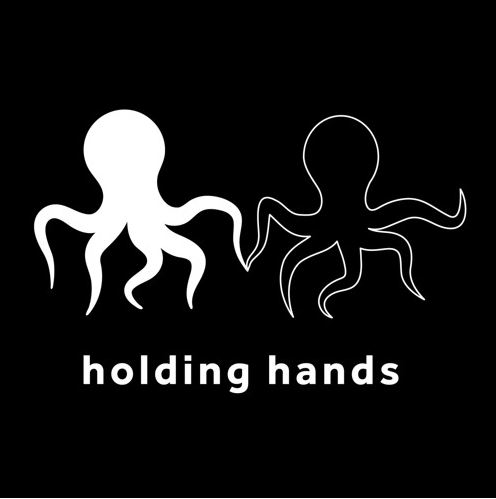In our new monthly, we’ll shine a light on some of our favourite podcasts. We’ll talk to their creators about what goes into their making, and why you should listen to it.
For December’s spotlight, we talked to DJ, producer and label boss Liam Wachs (Desert Sound Colony) about his Holding Hands Records Podcast. Liam produces and DJs under the alias Desert Sound Colony, and also runs Holding Hands, one of the UK’s most exciting cross-genre labels. The label releases meld techno influences with Bristol’s rich Bass heritage and the accessibility of breakbeats and 2-step garage.
16 – Synthetic Nixon EP by Desert Sound Colony
While last month’s featured podcast, Line Noise, focuses on detailed discussion with high profile guests, the Holding Hands podcast is the opposite. The podcast is intended to be accessible, and is recorded with aspiring producers in mind. It gives helpful advice into all aspects of production: from technical tips to time and funds management, as well as taking the occasional humorous tangent.
Holding Hands episodes feature discussion with two guests. They are usually UK producers, personal friends of Liam’s, artists who have released on the label, or all of the above. This gives every episode a laid-back feel, sounding more like a listening party or post-set debrief than a structured podcast. Whether you are a vinyl veteran looking for guidance going digital, or an artist new to creating electronic music, the Holding Hands podcast may be what you need to start honing your mixing and production techniques.
What drove you to start the podcast?
We didn’t really see anything else like it that existed. There were podcasts about music and some that touched on music production, but they all seemed to be either interviews with people about their career or they were incredibly professional and slightly out of reach from the day-to-day producer. We wanted to create something that seemed much more approachable and like you were just hanging out with your mates, having a laugh and learning a few bits and pieces along the way.
Coming from a music production and DJing background, did you find any aspects of starting a podcast particularly challenging?
To be honest I think it was the perfect background to start a podcast. We already had the relevant microphones and preamps and a good understanding of how to manipulate audio. The technical side is pretty simple once you get the basics right.
In episode 008 with Bradley Zero of South London label Rhythm Section, you mention that you wonder if some DJs are actually more introverted than they think. Do you think there needs to be a more calm, relaxed conversation about electronic music away from busy clubs and dance floors? Is the podcast an attempt to do this?
This is something which I think anyone would notice if they spent some time in the industry. It’s an unfortunate state of affairs that the only way to really make an income nowadays is from gigging, but currently, I don’t see a way to move away from that. I also think a large part of most people’s success in music is down to the personal connections that they make throughout their career. Obviously, that is going to be a bit harder for an introverted person to gather, so the odds are stacked against you which is sad. I guess any conversation that is less aimed at packed dance floors and more aimed at the joy of production and writing music is good for the industry; it reminds everyone what is going on behind closed doors to make the shellers they hear on a night out.
It’s frequently mentioned on the podcast that yourself, and some of your guests like Dr Banana, went to independent schools based on the teachings of Rudolf Steiner. Do you think Steiner’s philosophies have affected your production/DJing/podcasting at all?
I guess it’s a little hard to know for sure. There was definitely a lot of space to be creative at that school and so that must have played a part. Mostly I think we were just quite like-minded and once one person was into something then it fed down into the rest of our friend group.
Do you think podcasts can break down barriers between creators and fans of their work? Is this good or bad?
Absolutely it can. I think whether it’s good or bad is entirely dependent on whether you as an artist want to have those barriers removed. Creators are just normal human beings like everyone else. It’s very rare that you are going to get a look behind the curtain and find something incredibly unusual. I couldn’t say whether that’s good or bad. I guess it’s nice to know that we’re all the same, but on the flip side, it’s also enjoyable to imagine that some people are bigger than that and to put them or their life on a bit of a pedestal. It’s definitely a part of human nature and there is something to the feeling of aspiration that can sometimes help people succeed in their own life.


